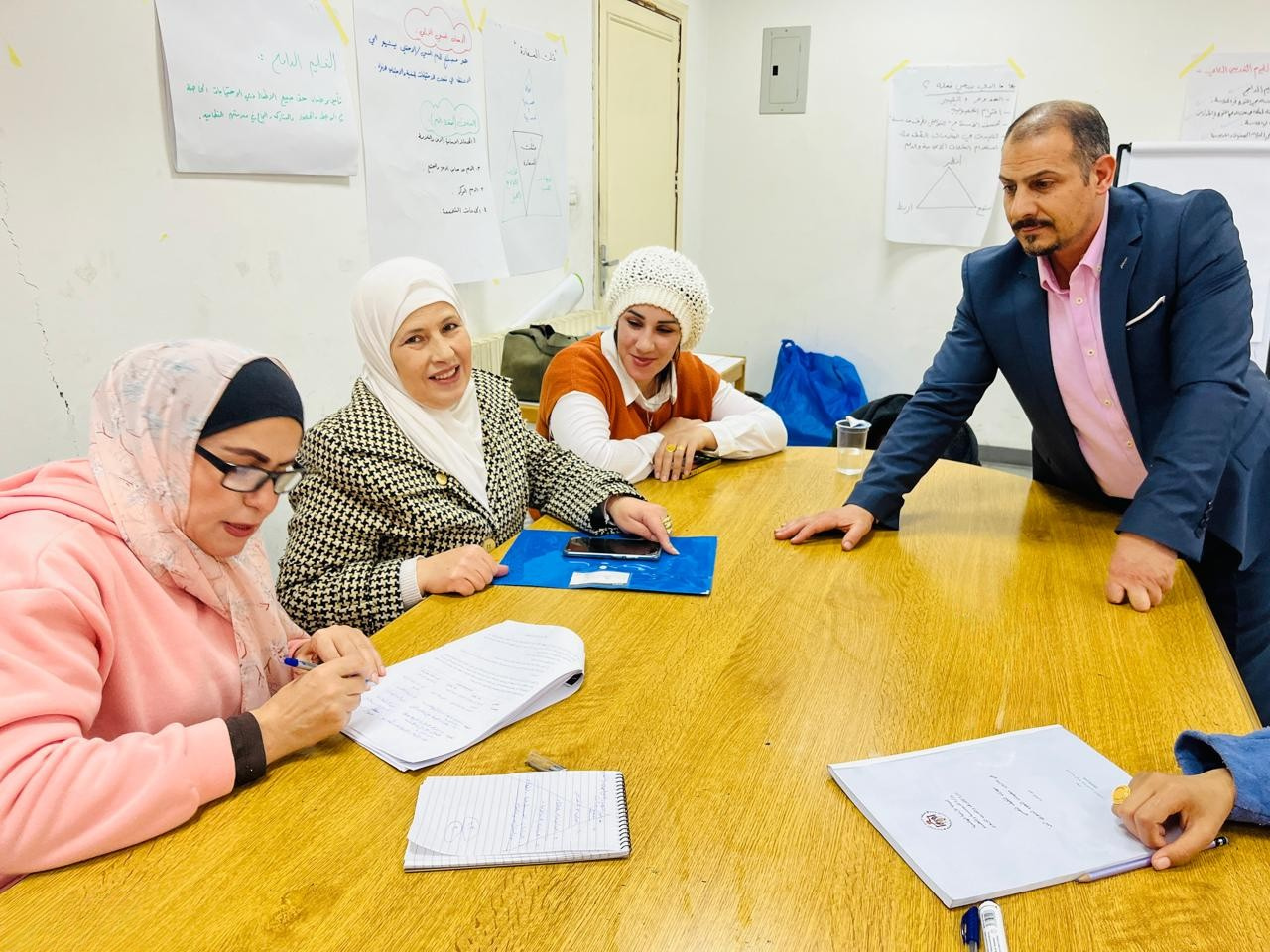
Queen Rania Teacher Academy and EDU-SYRIA Launch Psychosocial Support Program at Schools in Syrian Refugee Camp across Jordan
In a continued effort to support education among vulnerable populations, Queen Rania Teacher Academy (QRTA) and the EDU-SYRIA Program have launched a specialized program to enhance psychosocial support practices at schools in Syrian refugee camps in Jordan.
This initiative, titled “Psychological Adaptation Skills Program in Syrian Refugee Camp Schools,” is part of the EDU-SYRIA Program, managed by the German Jordanian University and funded by the European Union. It comes as part of EU’s ‘Support to Higher Education for Syrian Refugees and Vulnerable Jordanian Youth’ project, which aims to expand educational and professional development opportunities for communities affected by crises.
Building on QRTA’s extensive experience in psychosocial support programs, the program is designed to strengthen the capacity of school staff in the Zaatari and Azraq refugee camps, including teachers, school principals, assistant principals, counselors, and Syrian assistant teachers. It focuses on equipping educators with the tools needed to address psychosocial challenges, ensuring that learning environments remain safe, supportive, and resilient despite ongoing hardships.
Beneficiaries will gain specialized knowledge, practical skills, and best practices to help students develop coping mechanisms, manage anxiety and stress, and adapt positively to challenging circumstances. Additionally, the program provides cognitive-behavioral strategies to support effective crisis and emergency management at the school level, ensuring sustainable and impactful educational outcomes.
The new program draws upon the success of QRTA’s “Psychological Adaptation Skills Program in Times of Crises and Emergencies,” which was launched in 2020, accredited by the Ministry of Education, and successfully implemented in Jordanian public schools. A recent external impact study highlighted the program’s significant positive effects on mental health and social wellbeing, establishing it as a model for fostering supportive educational environments during crises.
Commenting on the launch, Dr. Osama Obeidat, CEO of QRTA, emphasized the importance of psychosocial support in education, stating: “Empowering educators with the right tools and strategies is essential to fostering learning environments that are both safe and supportive. Through this program, we are equipping school teams with the necessary skills to help students navigate challenges and build resilience, ultimately strengthening the entire educational ecosystem.”
Dr. Dhiah Abou-Tair, the EDU-SYRIA Project Manager, expressed his gratitude to QRTA for taking the initiative to implement this action, which will have a significant impact on the educational process inside the camps. Dr. Abou-Tair emphasized the importance of the partnership with the QRTA in empowering educators and students, explaining that this collaboration is crucial in strengthening psychosocial support within refugee camps and enabling teachers and students to overcome challenges.
